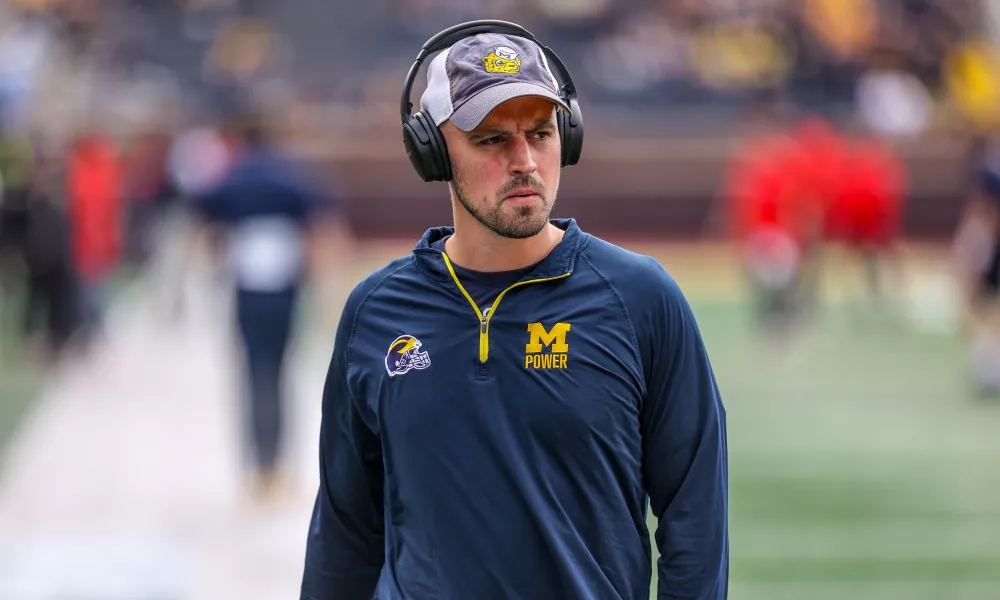The Michigan Wolverines football team is under investigation by the NCAA for buying tickets to Big Ten opponents’ games for the intention of sign-stealing.
Michigan staffer Conor Stalions is being investigated by the NCAA due to claims that Stalions bought tickets to over 30 opponents’ games, including the recent Ohio State vs. Penn State matchup. While the NCAA claims Stalions was attending the games to partake in “sign-stealing,” many familiar with the game call this a common practice. According to ESPN, evidence was found that includes “both video evidence of electronics prohibited by the NCAA to steal signs and a significant paper trail.” Stalions was suspended by Michigan with pay.

Sign-stealing is a form of scouting which entails the scouting of opponents’ signs, which could reveal what play they are doing (offensively or defensively). While sign-stealing itself is not prohibited in the NCAA, attending an off-campus game in-person is prohibited. According to the NCAA Bylaw 11.6.1, “off-campus, in-person scouting of future opponents (in the
same season) is prohibited, except as provided in Bylaws 11.6.1.1 and 11.6.1.2.” The exceptions are if the opponent is playing at the same site or in a Conference Championship. That means that if Michigan wanted to scout Georgia or Texas Christian University (potential College Football Playoff matchups) last year, they were allowed.
Although Michigan is under investigation, most people familiar with the game of football say this form of scouting is quite commonplace.
Before in-person scouting was banned by the NCAA in 1994, it was a natural part of the game. David Rypath, now a professor at Ohio University, said when he was at Colorado State University, he remembers a coach from Tennessee coming to scout the Rams in their home stadium.
Before, teams would send new plays in the huddle through player substitution. Now, most schools opt for the use of signs, which gives opponents the opportunity to decode the signs from the stands. These signs could either be in the form of celebrity name-drops, hand-signaling, or the famous Peyton Manning “Omaha!”
“It’s scouting! Everyone does it, I think it’s a waste of time,” he said. “I think everyone is jealous that Michigan finally has a title shot.” said first-year student Dean Fenstermaker, an avid Michigan fan.
Fenstermaker’s point is that most football fans and coaches don’t seem to have a problem with the alleged “sign-stealing.” Former Wisconsin Badger and future NFL Hall of Famer JJ Watt defended his former rivals in an Instagram comment, saying “that’s called scouting (and I’m a Badger).”
Matt Rhule, current Nebraska football and Carolina Panthers head coach, seemed to defend his in-conference rival. In a press conference on Oct. 23, Rhule said, “There’s nothing wrong with teams over there looking over trying to steal our signs,” he said. “There’s nothing wrong with us trying to look at their signs, that’s why you should have mics in the helmets, right?”


